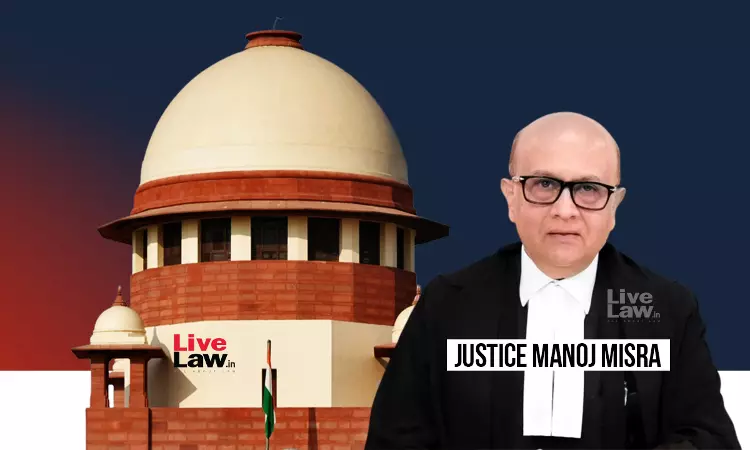Spotlight On Recent Appointments To The Supreme Court - Justice Manoj Misra
V Venkatesan
11 March 2023 10:13 AM IST

Next Story
11 March 2023 10:13 AM IST
A general criticism of the Indian Courts has been that very little is known to the public about the judges being recommended by respective Collegium before their appointment, on merit and suitability. A designated Secretariat ideally should do the job, unfortunately we don’t have such a mechanism. Livelaw has taken an initiative to share relevant information about the appointees and we...
